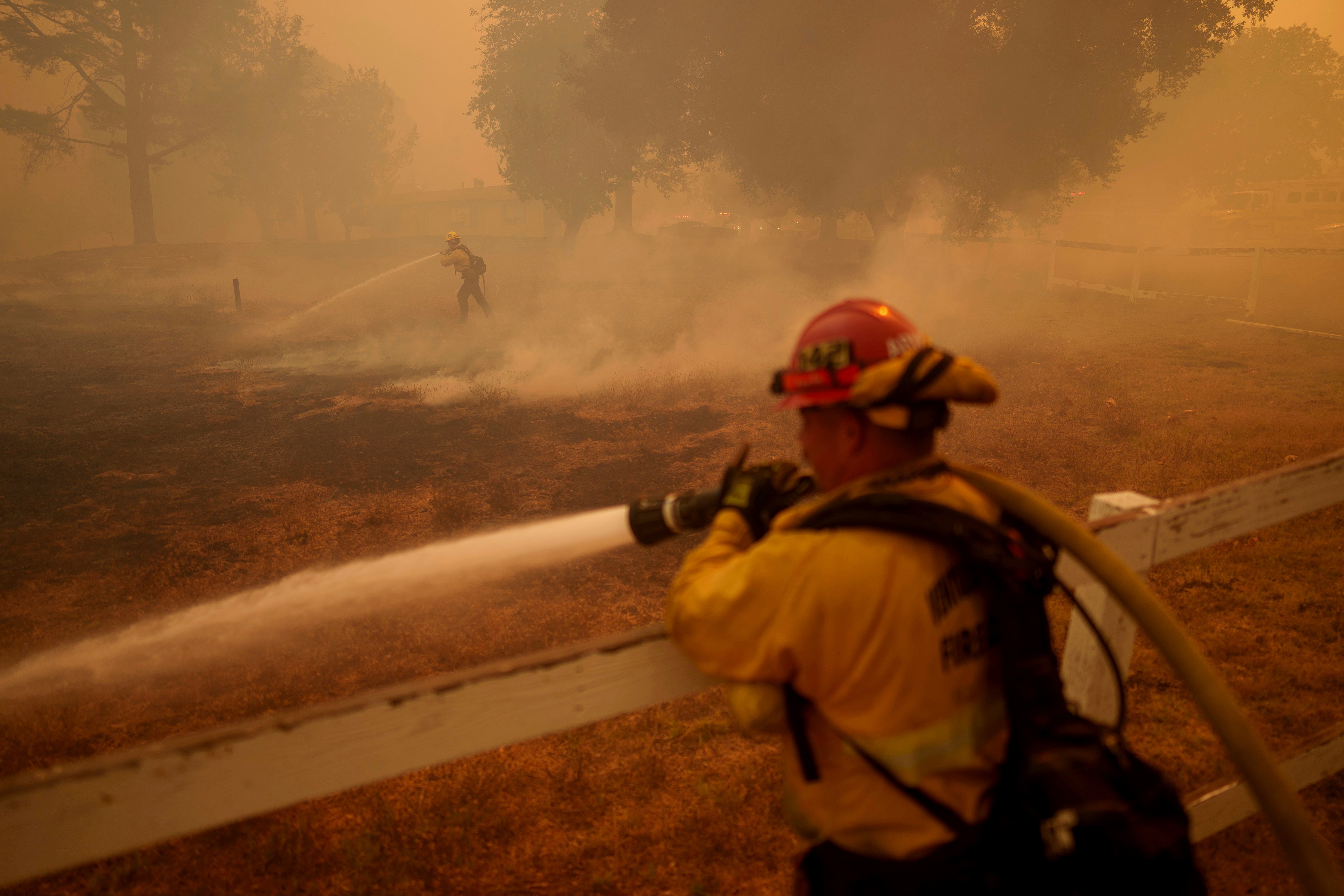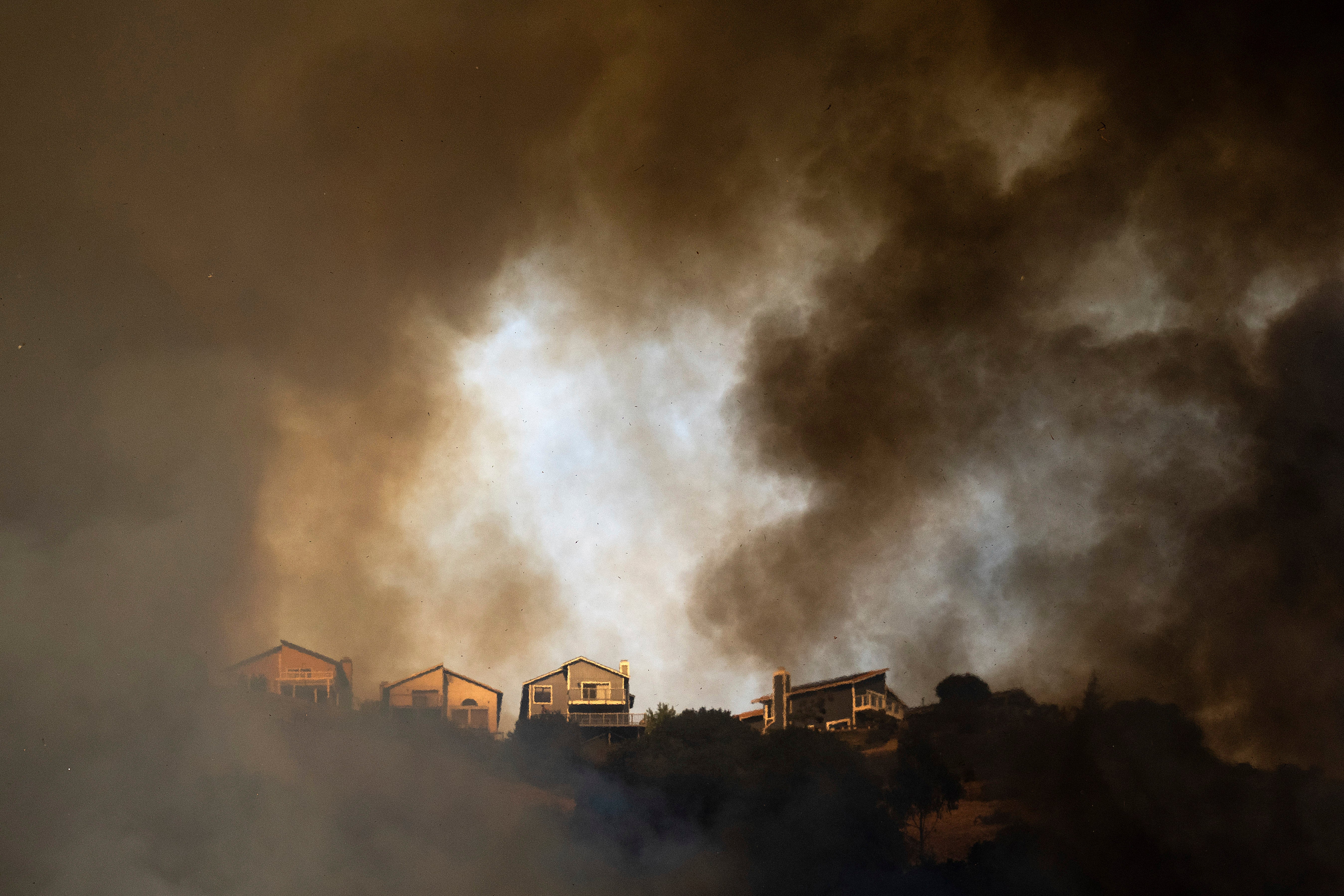Smoke pollution from wildfires is causing an extra 12,000 deaths per year, experts warn
Climate change is fueling tinderbox conditions that spark increasingly severe wildfires, resulting in thousands of deaths related to their smoke
Your support helps us to tell the story
From reproductive rights to climate change to Big Tech, The Independent is on the ground when the story is developing. Whether it's investigating the financials of Elon Musk's pro-Trump PAC or producing our latest documentary, 'The A Word', which shines a light on the American women fighting for reproductive rights, we know how important it is to parse out the facts from the messaging.
At such a critical moment in US history, we need reporters on the ground. Your donation allows us to keep sending journalists to speak to both sides of the story.
The Independent is trusted by Americans across the entire political spectrum. And unlike many other quality news outlets, we choose not to lock Americans out of our reporting and analysis with paywalls. We believe quality journalism should be available to everyone, paid for by those who can afford it.
Your support makes all the difference.Pollution in smoke produced by climate change-fueled wildfires has killed nearly 12,000 more people around the world in recent years compared to decades ago.
Researchers said this week that deaths from wildfire smoke and attributed to climate change each year rose from 669 during that decade to 12,566 in the 2010s. In total, there was a jump in fire-related deaths from fire-related air pollution have increased from 46,401 in the 1960s to 98,748 in the 2010, but only 12,000 have been linked to climate change.
South America, Australia and Europe experienced the most significant increases in deaths linked to climate change, because humidity in the regions had decreased and the temperatures in boreal forests have increased. Whereas, in South Asia, increasing humidity resulted in fewer deaths.
“This indicates that climate change is increasingly posing a threat to public health, driven by more fire smoke even affecting densely populated areas,” Chae Yeon Park, a researcher at the Japanese National Institute of Advanced Industrial Science and Technology and the lead author of the research, said in a statement.
Park’s study was published Monday in the journal Nature Climate Change. Its international contributors used pollution models and health risk assessment guidance to link the emissions deaths directly to climate change.

As a wildfire rages, its thick black smoke, which contains a mixture of hazardous pollutants, produces particles known as PM2.5. While the air humans breathe always contains particle pollution, exposure to PM2.5 is known to affect the lungs and heart.
Particle pollution exposure has been linked to premature death in people with related conditions, irregular heartbeat, aggravated asthma, nonfatal heart attacks, decreased lung function and difficulty breathing.
People with heart and lung diseases, older adults, pregnant women, children, minority populations, and low socioeconomic status populations are the most susceptible to this pollution.
In a warming world, conditions become hotter and drier and the threat of smoke pollution continues to grow. Climate change is raising the risk of extreme fires annually. Wildfires now account for approximately a quarter of Americans’ total exposure to PM2.5, which is also created by construction, transportation, and the fossil fuel industry. PM2.5 from burning fossil fuels was responsible for about 8.7 million deaths around the world in 2018.

Smoke can reach across countries, such as the smoke that traveled from western Canada to the northern US over the last couple of summers. Wildfire smoke has reversed progress on healthy air in 35 states. Nearly 30 wildfires are burning Tuesday in 12 states across the country.
“It’s crucial to understand that the impact of smoke from fires extends beyond those living directly in the affected areas — it also significantly affects people living in cities,” Christopher Reyer, PIK researcher and co-author of the study, said.
While cities might not face immediate deaths from wildfires, exposure can result in serious health consequences.
“Thus, it is vital to reduce emissions and enhance fire management strategies, to minimize the impacts of fires on ecosystems, economies, and public health across the globe,” Reyer said.
Join our commenting forum
Join thought-provoking conversations, follow other Independent readers and see their replies
Comments